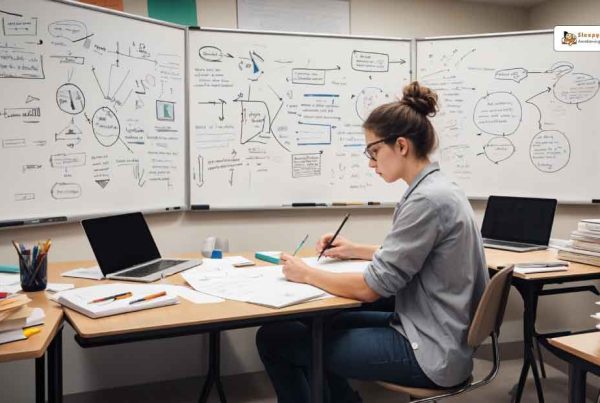Preparing for the UPSC examination is a rigorous journey that demands a blend of theoretical knowledge and practical experience. While extensive reading and understanding of static concepts are crucial, integrating fieldwork through volunteering and internships can provide aspirants with invaluable real-world insights. These experiences not only enhance learning but also equip candidates with essential skills that can give them a competitive edge.
Key Takeaways
- Volunteering helps build essential soft skills such as communication, teamwork, and leadership, which are vital for UPSC aspirants.
- Internships provide industry-specific insights and networking opportunities, bridging the gap between academic knowledge and practical application.
- Fieldwork enhances empathy, emotional intelligence, and a firsthand understanding of societal issues, enriching the aspirant’s perspective.
- Real-world experiences through volunteering and internships improve critical thinking, problem-solving, and answer writing skills by incorporating practical examples.
- Choosing the right opportunities that align with the UPSC syllabus and personal growth goals is crucial for maximizing the benefits of fieldwork.
The Role of Volunteering in UPSC Preparation
Volunteering plays a crucial role in the preparation for the UPSC exam. It offers aspirants a unique opportunity to develop essential skills and gain firsthand experience in various societal issues. By engaging in volunteer work, candidates can build a strong foundation that complements their theoretical studies and enhances their overall understanding of the subjects covered in the UPSC syllabus.
Internships: A Gateway to Practical Knowledge
Gaining Industry-Specific Insights
Internships offer UPSC aspirants a unique opportunity to gain industry-specific insights. By working in a professional environment, aspirants can understand the practical applications of their theoretical knowledge. This experience is invaluable as it helps them relate their academic learning to real-world scenarios, making their preparation more holistic.
Networking Opportunities for Future Aspirants
One of the significant benefits of internships is the chance to build a professional network. Networking can open doors to future career opportunities and provide aspirants with mentors who can guide them through their UPSC journey. These connections can be instrumental in gaining insights into various fields and understanding the nuances of different industries.
Applying Theoretical Knowledge in Real Scenarios
Internships allow aspirants to apply their theoretical knowledge in real-world situations. This practical exposure helps them understand the complexities of real-life problems and develop problem-solving skills. It also enables them to see the relevance of their studies in everyday life, making their preparation more relevant and engaging.
Engaging in internships can significantly enhance an aspirant’s understanding of societal issues and their ability to address them effectively in their UPSC exams.
How Fieldwork Complements Theoretical Studies
Fieldwork offers a unique opportunity to explore, understand, and address real-world phenomena in their natural contexts. By embracing the complexities and nuances of real-world settings, UPSC aspirants can significantly enhance their preparation.
Bridging the Gap Between Theory and Practice
Fieldwork allows aspirants to apply theoretical concepts in real-world settings. This hands-on experience helps in understanding the practical implications of what is learned in textbooks. Engaging in fieldwork can make abstract concepts more tangible and easier to grasp.
Developing Analytical and Research Skills
Participating in fieldwork helps in honing analytical and research skills. Aspirants learn to collect data, observe patterns, and draw conclusions based on empirical evidence. This process is invaluable for developing a critical thinking mindset, which is essential for the UPSC exams.
Real-World Applications of Classroom Learning
Fieldwork provides a platform to see how classroom learning translates into real-world applications. It offers insights into societal issues, governance, and public administration, which are crucial for UPSC preparation. This practical exposure can make a significant difference in understanding and answering questions in the exam.
Fieldwork is not just an addition to theoretical studies; it is a vital component that enriches the learning experience and prepares aspirants for the complexities of real-world challenges.
Volunteering and Internships: Enhancing Answer Writing Skills
Incorporating Real-Life Examples in Answers
Volunteering and internships provide UPSC aspirants with a treasure trove of real-life examples that can be seamlessly integrated into their answers. These experiences offer concrete instances that can make answers more relatable and impactful. For instance, working with an NGO can provide firsthand insights into societal issues, which can be used to substantiate arguments in the exam.
Improving Critical Thinking and Problem-Solving
Engaging in fieldwork helps in honing critical thinking and problem-solving skills. When faced with real-world challenges, aspirants learn to analyze situations from multiple perspectives and devise effective solutions. This ability to think on their feet is invaluable when tackling complex questions in the UPSC exams.
Demonstrating Practical Understanding in Essays
Fieldwork experiences allow aspirants to demonstrate a practical understanding of theoretical concepts in their essays. By incorporating these experiences, candidates can showcase a well-rounded perspective that goes beyond textbook knowledge. This not only enriches their essays but also highlights their ability to apply theoretical knowledge in real-world scenarios.
Engaging in internships and volunteering activities can significantly enhance an aspirant’s ability to write compelling and insightful answers in the UPSC exams. These experiences provide a unique blend of practical knowledge and critical thinking skills that are essential for success.
Choosing the Right Volunteering and Internship Opportunities
When selecting volunteering and internship opportunities, it’s crucial to align them with the UPSC syllabus. This ensures that the experiences you gain are directly relevant to your preparation. For instance, if you’re focusing on social issues, volunteering with an NGO can provide firsthand insights into societal challenges. Aligning your fieldwork with your study topics can make your preparation more cohesive and practical.
Not all opportunities are created equal. It’s essential to evaluate how a particular volunteering or internship experience will contribute to your personal growth. Look for roles that challenge you and help develop new skills. For example, working in different internships can enhance your leadership abilities and problem-solving skills. Reflect on how each opportunity can help you grow both personally and professionally.
Balancing your time between studies and fieldwork is a common challenge for UPSC aspirants. It’s important to manage your schedule effectively to ensure that neither your studies nor your fieldwork suffers. Create a timetable that allocates specific hours for study and fieldwork. This balance is crucial for maintaining a steady preparation pace while gaining valuable real-world experience.
Remember, the right volunteering and internship opportunities can significantly enhance your UPSC preparation by providing practical insights and developing essential skills.
Success Stories: UPSC Toppers Who Benefited from Fieldwork
Fieldwork has played a crucial role in the success of many UPSC toppers. These real-world experiences have not only enriched their knowledge but also provided them with a unique perspective that is often missing from traditional classroom learning. Fieldwork experiences have empowered these aspirants with invaluable firsthand knowledge, making their preparation more holistic and effective.
Discover the inspiring success stories of UPSC toppers who have significantly benefited from fieldwork. Their journeys highlight the importance of practical experience in achieving top ranks. Ready to start your own success story? Visit our website to explore our comprehensive UPSC courses and join the ranks of successful candidates today!
Conclusion
In conclusion, the integration of fieldwork and real-world experiences through volunteering and internships offers UPSC aspirants a multifaceted approach to their preparation. These experiences not only enhance their understanding of theoretical concepts but also provide practical insights that are invaluable during the examination. By engaging in such activities, aspirants can develop a well-rounded perspective, improve their problem-solving skills, and gain a deeper appreciation for the subjects they study. Ultimately, this holistic approach can significantly boost their confidence and performance in the UPSC exams, paving the way for a successful career in public service.
Frequently Asked Questions
How can volunteering help in UPSC preparation?
Volunteering helps UPSC aspirants develop essential soft skills, gain firsthand experience of societal issues, and enhance empathy and emotional intelligence, all of which are valuable for the exam and future administrative roles.
What are the benefits of internships for UPSC aspirants?
Internships provide industry-specific insights, networking opportunities, and practical application of theoretical knowledge, helping aspirants better understand real-world scenarios and enhance their preparation.
How does fieldwork complement theoretical studies in UPSC preparation?
Fieldwork bridges the gap between theory and practice, helps develop analytical and research skills, and allows for real-world application of classroom learning, making theoretical concepts more tangible and understandable.
Can volunteering and internships improve answer writing skills for UPSC exams?
Yes, incorporating real-life examples from volunteering and internships can enrich answers, improve critical thinking and problem-solving skills, and demonstrate a practical understanding in essays, which are crucial for UPSC exams.
How should UPSC aspirants choose the right volunteering and internship opportunities?
Aspirants should align opportunities with the UPSC syllabus, evaluate their impact on personal growth, and ensure a balance between study time and fieldwork to maximize benefits.
Are there any success stories of UPSC toppers who benefited from fieldwork?
Yes, there are several case studies of successful UPSC aspirants who have benefited from fieldwork. These stories provide valuable lessons and inspiration for current and future aspirants.






